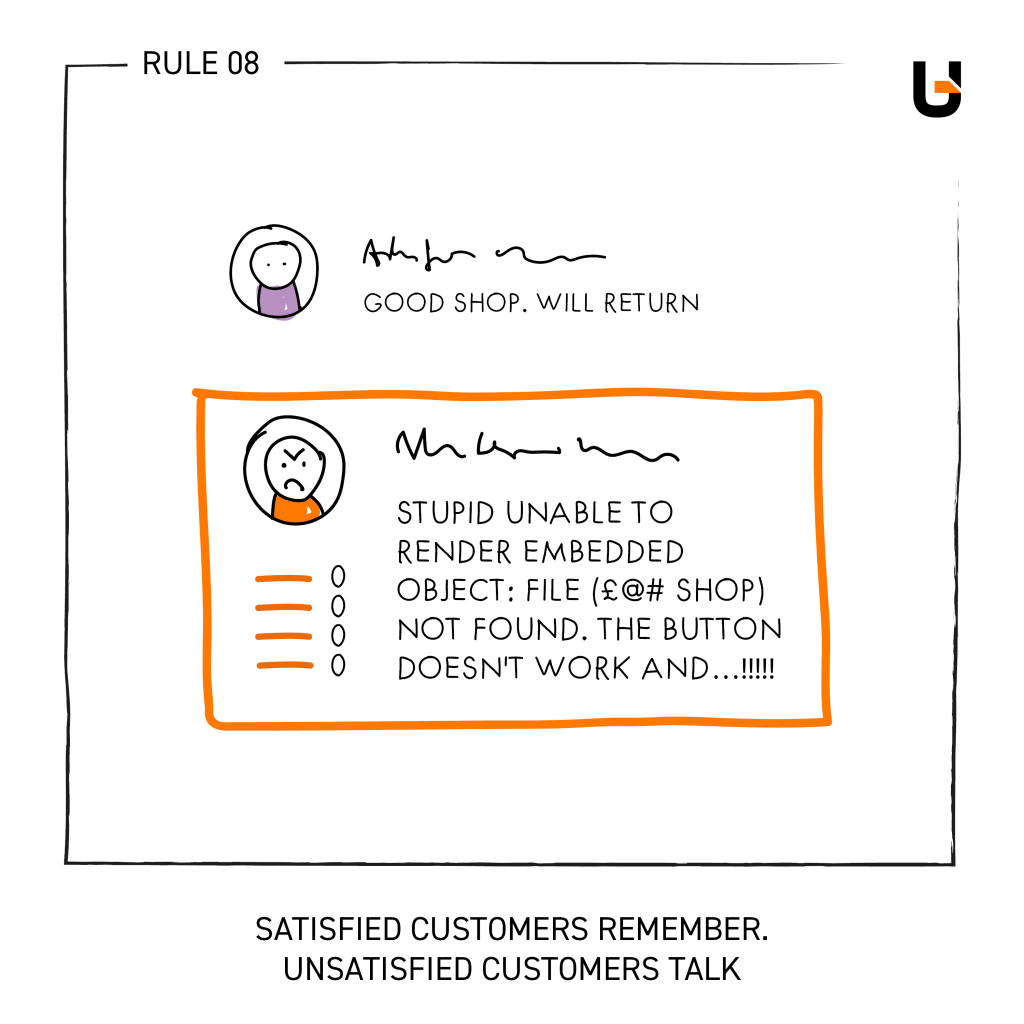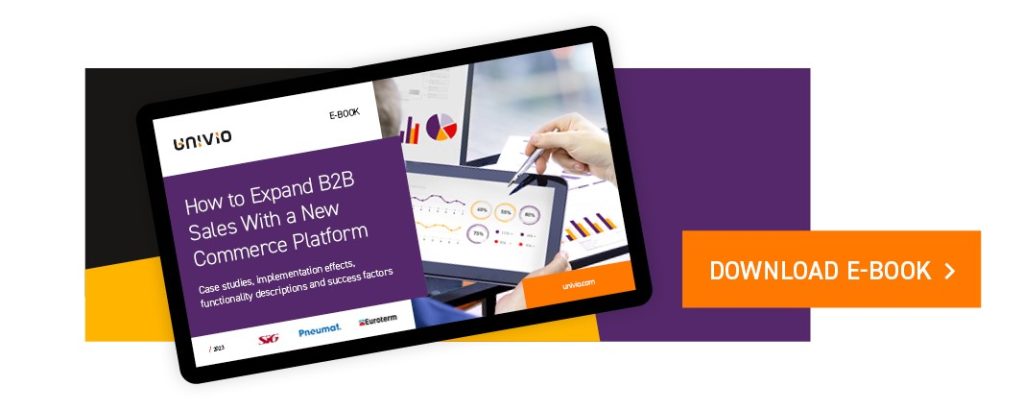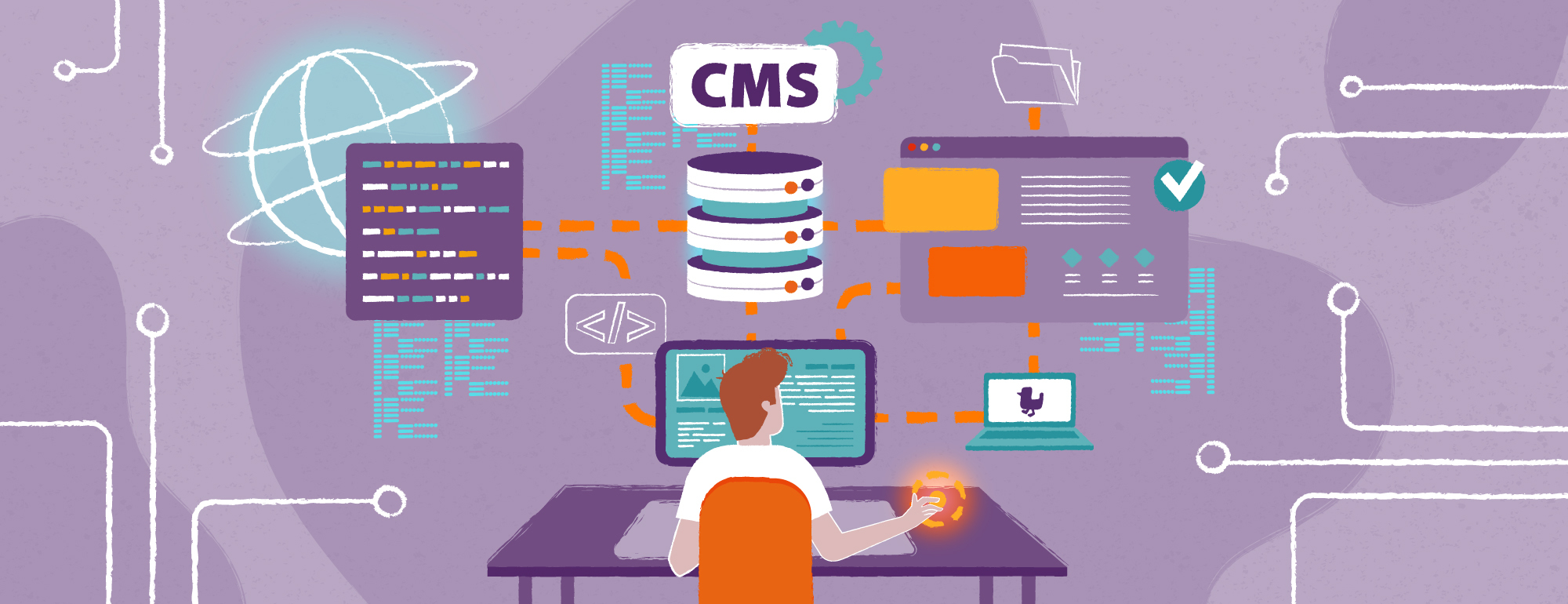Unique Trends in B2B E‑commerce
The purchasing behaviors of B2B customers have been gravitating towards the digital model for years, with increasingly blurred lines between customers private buying behaviour and what they expect from the business sector. After all, we’re all consumers. Glued to our laptops and phones, we can get almost anything done with just a few clicks.
Online sales growth was propelled by the pandemic, and today the digital transformation of commerce cannot be stopped. According to Gartner, by 2025 80% of B2B sales interactions will occur in digital channels. Paying attention to what trends prevail in this sector and how they can be leveraged in your strategy will help you put the company on the course to success.
Observing the changing customer behaviors in the B2B e-commerce sector, we have prepared a tool that will allow you to harness the emerging opportunities and respond to buyer needs – the ONe B2B platform.

Why Does B2B Business Need E-commerce Platforms?
Before we discuss the latest trends in the B2B e-commerce sector, let’s summarize the benefits of implementing a commerce platform for business customers.
- Facilitating the shopping process – B2B e-commerce platforms enable customers to make quick and convenient online orders, anywhere and anytime. Customers are free to browse and compare products, saving them on a wish list or going straight to the checkout (and paying online or using trade credit). As a result, business is done around the clock. Understandably, we discourage this, mindful of the work-life balance😉
- Increasing sales efficiency – the automation of business processes (such as ordering, payment processing, customer service and inventory management) helps you save time and resources, and consequently increase business efficiency.
- Attracting new business – buying via an e-commerce platform presents an available option for all interested customers, wherever your company is based. Modern e-commerce platforms facilitate the roll-out to foreign markets and the expansion of the company’s customer base.
- Improving customer experience – customer experience will benefit a lot if you offer quick and convenient purchases that can be made with just a few clicks, combined with a suitable payment method.
- Increasing your competitive edge – launching sales on a commerce platform will increase the company’s competitiveness.
- Cost optimization – opening a new sales platform always requires a financial investment. However, in the long haul, moving the center of gravity to the online channel will help you keep costs down.
The convenience of shopping through modern commercial platforms, such as ONe B2B, increases the loyalty of regular customers and attracts new ones. The various types of available industry-specific calculators, such as for underfloor heating, tiles or cables, help clients avoid excessive goods on stock and reduce the cost of maintaining and storing inventory. By pursuing a flexible pricing policy, it’s easier to introduce various promotional scenarios, such as end-of-season sales, support for slow-moving goods or high-margin products – by placing them at the top of the search list, for example. Process automation increases efficiency and thus helps you save time and money.
Transferring Experience From the B2C E-commerce Channel
B2C companies have raised the bar high when it comes to the standard of customer experience in the purchasing process. There is a emphasis on fast and accurate search results, flexible filtering, attractive product presentation, smooth navigation, the ability to customize shipping methods and shipment tracking, personalization of shopping, effective customer service and flexible payment methods. Online B2B e-commerce platforms should have features dedicated to business clients, but at the same time offer the same convenience as B2C systems.
Currently, Millennial and Gen Z buyers account for 64% of business buyers. Access to new technologies and the generational shift mean that B2C and B2B customers have similar expectations regarding the level of shopping experience. However, the B2B sector has its own specific features and needs, such as allowing room for negotiation. The ONe sales platform supports direct relations between the seller and the buyer, while allowing prices to be flexibly adjusted to customer segments or individual customers.
Ability to Quickly Set up a B2C or D2C Platform
As your business grows, you can decide to expand sales to retail customers in the B2C or D2C model. And as you do, your commercial platform should be able to accommodate that change. With the flexible ONe system, you can open your own platform and invite all customers to shop.

Personalizing the B2B Customer Experience
Personalized experience is key to winning customers over and maintaining their loyalty. In 2022, 62% of respondents said that a brand would lose their loyalty if it delivered an unpersonalized experience. Another survey showed that 71% of consumers expect companies to deliver personalized interactions. Businesses can use customer data to personalize product recommendations, promotions and prices. In this way, they can increase customer loyalty and retention.
B2B shopping personalization features offered by the ONe platform include:
- Pricing policy adjustments to customer groups or individual buyers
- The possibility to offer discounts on an individual basis
- Flexible promotional scenarios
- The availability of various channels of communication with sellers
- Integration with a PIM tool for easy access to product information
In the world of business, relationships go a long way. That’s why ONe offers a seller panel that will make it easier for your employees to interact with buyers directly and provide them with the highest level of service. In turn, dedicated tools can be used to ensure personalized communication, via the likes of email campaigns, and to offer a loyalty program for customers.

Omnichannel
Omnichannel B2B is a strategy in which companies use various communication and sales channels to deliver a consistent personalized experience throughout the buying process, whether the customer chooses to buy via a website, mobile app or in store. Unlike multichannel, where each channel operates independently, in omnichannel all channels are integrated and work together seamlessly.
Previously, purchases in the business sector used to be made in store only. Today, buyers can order online from any place, such as the office, warehouse, construction site, or even from a car during travels. They can order a shipment and pick it up from a courier or visit a physical store. Whatever channel they use, they can expect the same price and consistent experience.
Adapting E-commerce to Mobile
More and more people use mobile devices, not just for communication and entertainment, but also for shopping. Sales channels tend to overlap. We often see something in a store and then order it online, or vice versa: when we find a product online, we wish to view and touch it in a physical store. This is the ROPO (Research Online, Purchase Offline) effect.
The same applies to business buyers who often work in the field – and always have a smartphone at hand. Making your platform responsive is no longer considered a trend, but a standard. As we observed the growing importance of B2B mobile commerce optimization, we equipped the ONe platform with a PWA system to ensure the comfort and convenience of shopping from any device.
Use of AI
B2B companies are increasingly using AI-driven automation tools to streamline processes such as order management, recommendation systems and customer service. Chatbots are also growing popular, ensuring fast and effective communication across channels.
Content Commerce
B2B content commerce is a strategy whereby the company uses valuable and engaging content to attract customers and encourage them to buy. Unlike traditional marketing focused on promoting products, content commerce concentrates on creating value for consumers by providing them with relevant content. The strategy can be implemented using various channels, including a website, blog, social media or newsletters. However, the key thing is to deliver valuable and consistent content that will allow customers to understand the benefits offered by the company’s product or service. Business buyers can better deliver high quality content by using PIM tools integrated with ONe. Importantly, the repository can store not only product photos and descriptions, but also technical data, which are particularly important for B2B customers.
Transparency in Business Relations
In the business sector, transparency is key – it helps build customer trust and facilitates effective process management. And here’s how we have addressed this in the ONe B2B sales platform:
- The possibility of transferring information through the seller’s panel ensures that any misunderstandings between the seller and the buyer are kept to a minimum. In turn, prices and sales conditions must be transparent and easy-to-find, so that customers can take appropriate shopping decisions.
- Consumers always expect up-to-date and reliable information about product availability. By integrating e-commerce with the inventory management system, the risk of product unavailability is highly reduced.
- Transparency in logistics processes is crucial for effective supply chain management. Customers expect to be kept up to date on fulfillment times, shipment tracking, delivery status, etc.
- Transaction security and transparency in terms of privacy policy, safeguards and security certificates ensured by ONe helps increase customers’ trust in the online shop.
Summary
Online sales in the B2B sector have been growing in recent years, driven by technological progress and changing consumer preferences. Doubtless, the most important trends are personalization, the optimization of e-commerce platforms for mobile devices, new sales models and AI-powered solutions. However, business relations and transparency continue to play an essential role. Companies that will manage to adapt to these trends and provide seamless, personalized shopping experiences to their buyers across distribution channel will be best positioned for market success.
Do you want to learn more about B2B platforms? Let’s talk!







